It was an honor to be a guest on Mitch Joel’s Six Pixels Of Separation podcast.
In this episode, I shared the ins and outs of the world of SEO. I talked about how to use technology to make marketing exponentially better and some of my most effective SEO strategies that help you rank higher in the Google search results. I also shared some of my tips on hiring a legit SEO person or team.
This episode is filled with a ton of great information to help you jumpstart your organization’s SEO. Enjoy!
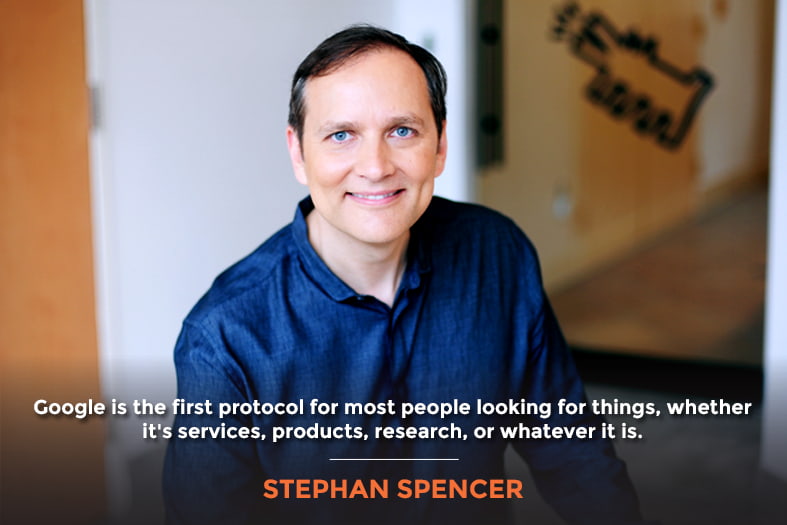
In this Episode
- [00:21] Stephan shares his interview on Mitch Joel’s Six Pixels Of Separation podcast, in which he talks about the ins and outs of the world of SEO.
- [00:51] Mitch starts his show by asking about Stephan and what he does.
- [02:09] Stephan answers the question that SEO is still relevant and explains why you need to be highly ranked on Google.
- [05:36] Mitch says that he started one of the first search engines and asks Stephan if one can still rank number one by using some keywords and great content.
- [11:41] Stephan agrees that there are many posers and pretenders and further gives examples of mythology in SEO.
- [15:38] Stephan compares search engine query volumes and searches behaviors between Google, Youtube, Bing and Yahoo and names free tools to help with search volumes and trends.
- [18:40] Mitch and Stephan talk about them being search and technical geeks and encourage listeners to read the book called The Art of SEO.
- [22:57] Mitch notices smart brands do a site search and drive to either ecommerce or retail, which makes them dominate in search across the board, not just Google search.
- [25:21] Mitch saw the search done well and asked Stephan if he sees it as valuable/part of a smart marketing mix, or is that only held for the brands that are already doing a ton of spending and doing everything right.
- [29:53] Stephan and Mitch discuss creating link-worthy, buzzworthy content on your site or blog, the launching pad for fantastic content marketing and remarkable content. You’re going to use social power users.
- [34:31] Mitch wants to talk a little bit about what a brand needs to understand when it comes to things like image-based playing and asks Stephan’s perspective on how to make sure it’s in there properly.
- [39:22] Mitch appreciated the depth of tactics that Stephan got into and further said when he glanced through The Art of SEO; that it was an awakening for him.
- [41:49] Stephan answers Mitch’s questions about Google’s algorithm: here’s an opportunity to differentiate, outsmart the competition, and get powerful links and powerful votes that propel you forward.
- [45:25] Mitch thanks Stephan and asks where people can best connect to him and know his works.
Transcript
Hey there and welcome to episode number 458 of Six Pixels Of Separation – The Mirum Podcast. My name is Mitch Joel. Let’s get on with the show. So who are you and what do you do?
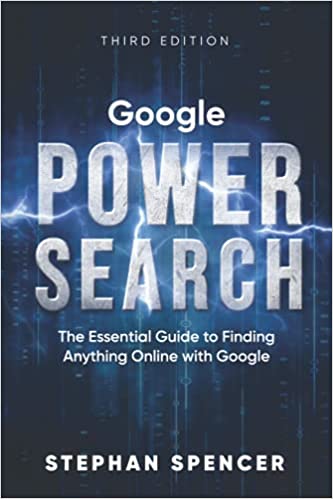
Stephan Spencer
Well, I’m an SEO consultant, speaker, and author. I wrote Google Power Search, co-wrote The Art of SEO, now in its second edition, soon to be in its third edition, and co-wrote Social eCommerce.
And your name is?
Stephan Spencer.
You forgot the most important part.
Oh, yeah.
You’re like, I know you so I don’t have to say my name. How have you been?
I’ve been awesome. Traveling the world, speaking at shows, attending seminars, and helping clients out with their SEO.
Yeah, keeping busy. So talk a little about the world of SEO. I think from the perspective of a lot of brand people, I don’t want to say that SEO has fallen by the wayside, but there have been a lot of things that have come into the world that have probably diverted the focus away from making sure that your search is powerful and that you are strong in that space.
In particular, obviously, social media. Even I think mobile to a certain degree has pushed it away. How do you feel about the space? Is that a space that is still growing? Is it a space that you feel is where it is?
It’s still very relevant, very important. Google is the first protocol for most people looking for whether it’s services, products, research, or whatever it is. They’re not going to Facebook or Twitter to do the research on which product to buy as much as they’re looking at a Google search to see what sort of reviews and ratings pop up, product information, the best prices, and so forth. You really need to be in Google and you need to be highly ranked.
Google is the first protocol for most people looking for things, whether it's services, products, research, or whatever it is. Share on XIf you aren’t, then that kind of puts a question in the prospect’s mind like, are you still relevant? Are you still around? Are you legit? Even if they found you through a social media channel such as Facebook, Twitter, Pinterest, or whatever, you still have to rank highly in Google, whether it’s for your brand, or it’s for non-brand keywords where they think, okay, you’re supposed to be a leader in your industry. I’m going to search for your industry. I’m going to search for your type of product. If you don’t show up, that doesn’t look good.
Let’s take lots of stuff to talk about. You said it’s the first protocol and my feeling and my instinct would be that if you’re looking for something, the first place we might ask now in front of Google might be our social graph that might be on Twitter, hey, does anybody know XYZ on Facebook or somewhere else? Is this proliferation of these newer spaces and opportunities for people to connect with, even messaging apps I would say, taking away from the Google space, or do you still feel that inevitably, search and Google plays a factor?
I’d say it still plays a factor and it will in the future. I would see that one is augmenting the other and vice versa. If you start with Facebook, Google Plus, or wherever you ask your social graph for their opinions on whatever it is like an agency that you want to hire, a consultant, or some sort of new technology, you still want to check that out in Google and see what comes up. What news articles and research papers and blog posts are out there in relation to that product or technology?
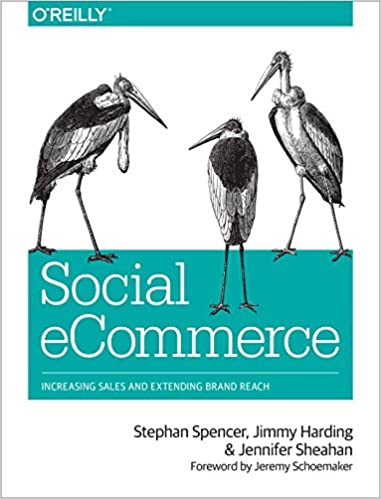
If you start with Google, you’ll turn to your social graph for confirmation that you’re on the right path. Conversely, if you started with your social graph, you’ll want that confirmation from Google searches, I think.
Talk a little about what that landscape looks like when it comes to search. I’m really fascinated with that because one, my background is I started one of the first search engines so this was an area that I was very, very early into. Even before Google, I was doing what Google does.
When I think of search now, as a guy who is part of a much larger organization now with Mirum and 2000-plus employees and all that, I often wonder what great SEO looks like only because we see things like, obviously, once you’re logged in, it’s personalized. It knows your location. It used to be that if you were really smart with some keywords and some great content, you could be number one. Are those days over? Am I wrong to think that it’s so much harder to place?
It is harder, Mitch. While we both have been around for a long time. I remember us speaking on panels together and stuff.
One of the first search engine strategies.
Yeah, it was a long time ago. Neither one of us looks any worse for where, by the way.
I think we’re both actually getting better looking as we get older, but that’s another story.
Yeah. If you think about what’s been happening in this space in SEO and search engines, a lot has changed but the fundamentals of quality content, appropriate context, good authority, importance, and trust signals are tried and true foundational algorithms. There’s been a lot of stuff that Google’s put out there to really stomp on the efforts of the spammers.
Google Panda, Google Penguin, for example, have been thwarting the efforts of spammers with their unnatural link building and that’s Penguin, and with their low-quality content and content farming, that’s Panda. There are a lot of other lesser-known algorithms and bits and pieces that are baked into the main Google search algorithm. It’s really to thwart the spammers, not so much to take the search experience to another level. Yes, there’s that too with Hummingbird and rearchitecting the way that Google looks at keywords versus entities and correlations between words and so forth.
There’s co-occurrence analysis, all sorts of geeky stuff like the semantic web, and all that sort of stuff. If you think about from a marketer’s point of view what’s relevant, what’s important, it’s really about getting your message to your market. That’s been the case since the very beginning. It used to be a lot easier for spammers to have their way with the search engines. Throw some garbage keywords into some meta tags and boom, but Google never counted the meta keywords tag.
There’s a lot of misinformation out there.
There’s a lot of misinformation out there. People saying, well, this thing is the secret weapon or this is the shortcut. It’s all misinformation, disinformation, and mythology. The science behind SEO, I know it’s ironic since I co-authored The Art of SEO, but it’s really a science more than it is an art.
That means experiments, hypotheses, testing your hypotheses, control groups, and all that sort of stuff to see what works and what doesn’t work to reverse engineer Google’s algorithm and figure out the inner workings without having to work on the inside at the Googleplex. It’s a tough job, but somebody’s got to do it.
That’s my point, Stephan. Not only is it a tough job, it just seems like it’s not only getting tougher, but it’s tougher because there are so many people in play. To me, it was simple like if I wanted to own a bunch of keywords in terms of someone looking for them and finding them. At the time, it was obviously an image in the blog we had. I sort of knew how to do that.
It feels to me now even in the realm of digital marketing in Canada where 10 years of legacy and blogging and all this, I feel others have come in and have figured out to “game the system” whether it’s ethical or not. I’m fine with it being ethical, by the way, I have no issue with that.
It just seems almost insurmountable as a brand to be able to have any form of dominance without I don’t know what. It seems like you really do have to pay to play to make it really work. It feels like the free rides are over. You’re saying they’re not but it feels to me like they are.
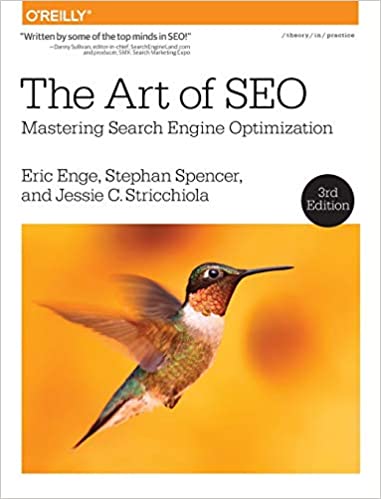
Well, I don’t think they are. I think you actually have a leg up If you’re an established brand compared to the Wild West days of SEO, so a lot of the brands are overtaking smaller, more specialized players. They could be the kind of the Walmarts and Amazons of the world who have a product line out of a bazillion other ones.
They’re suddenly outranking all the niche players who have been used to having a dominant position. That’s tough for the smaller businesses. But the thing is if you have a secret weapon, namely somebody who understands the ins and outs, the science, and the art of SEO, then you have that secret weapon, and you can leverage it.
With that, there is a lot of snake oil. I mean, you say that, but I assume people are calling me day in and day out that they’re paying these people thousands of dollars a month and they have no idea what they’re doing.
Absolutely. You got to sniff that out. There are lots of posers, lots of pretenders out there, and a lot of mythology. I wrote an article series for Search Engine Land on that very topic of SEO myths. I wrote one called 36 SEO Myths That Won’t Die But Need To and 36 More SEO Myths That Won’t Die But Need To. I came up with a total of 72 myths. Then there were a lot of posers and pretenders who came out of the woodwork to say no, that’s not true.
Then this is the scenario where this is true or whatever because they’re afraid that their boss is reading the article and is going to fire them for all this nonsense. Like, oh, we spent all this effort on developing our meta keywords. Now you’re telling me that Google never counted them? What the heck were we paying this guy for? We need to fire him.
If you don’t know SEO, you don’t know which questions to ask.
So they came out of the woodwork to make their point and train and save face but I just crushed it all in another follow up article of the myths reloaded and all this controversy and so forth that were showing up in the comments. I put them all in their place one after another. But the thing is, if you don’t know SEO, you don’t know which questions to ask. That’s where another Search Engine Land article comes in. I wrote it a few months ago on hiring and vetting an SEO, whether it’s an employee, contractor or an agency.
Imagine having a handful of questions that you just slip into the interview process. You’re asking about things like what’s your process for doing keyword research, tools to use and so forth, but what if you have some trick questions up your sleeve? They don’t know that you have this and they don’t know that there are only certain answers that are acceptable and others will expose that person as a pretender or as really outdated in their SEO knowledge.
Give me good ones.
I’ll give you some good ones.
We’re friends, right?
Meta keywords never counted in Google.
Absolutely, so why not share this with the world? How about what tools to use for keyword research? Then you just let them answer that. But then you lead in with another question about keywords and say, so tell me, what is your process for optimizing meta keywords? You’re just ready to take notes or whatever. This is a trick question because remember, I told you meta keywords never counted in Google.
Google went on record to say this in their Google Webmaster Central blog back in 2009 or so they said this, that they never counted, it was never part of the algorithm as a positive ranking signal. Here you’re just giving them enough rope to hang themselves.
Another example might be to ask them, for meta descriptions, how does that influence the rankings? The only correct answer here is they don’t. Meta descriptions don’t influence the rankings. They only influence the snippet that is displayed in the Google search results. They’re not going to move you up to go through and optimize all your meta descriptions across your site, at best it is a second order activity. That’s just to get better snippets.
Instead of the copyright statement and all rights reserved. You might have something more compelling there but you didn’t move from position two to position one or from position eight to position five by doing these meta descriptions. So that’s another example of a trick question.

We’re sort of in the world of Google and when you talk about search, is it just because it is such an 800-pound gorilla, or do you see anything? I mean, we constantly hear about Bing and Yahoo. Is that war completely over that’s just never going to come to be? Because for a time, and especially when we were in the early days of it, it could have gone another way. It didn’t look like it would, but it could have.
Yeah, I think that war’s over. It really is about Google. That is the 800-pound gorilla, Bing and together with Yahoo because Bing powers Yahoo. It’s a reasonable percentage of the search market share that I wouldn’t totally neglect. It’s not what I’d focus on. It’s like the cherry on the top, if you also get by your various authority link building type efforts and your on page optimization work, you happen to also get high Bing rankings as well as the high Google rankings.
That’s great, but I’m not focused on that. I’m focused on Google. Actually, the number two search engine if you break out Bing and Yahoo separately as two individual search engines with separate query volumes, YouTube is the number two search engine. It’s not Yahoo, it’s not Bing. It’s Google and then it’s YouTube, another Google property.
By the way, if you’re curious on how search behavior is different between Google and YouTube, one way is simply to just start typing in keystrokes into the search box in Google and YouTube and see what the search suggestions are. That’s one way to get a sense for, wow, search behavior is very different on YouTube versus Google.
YouTube is the number two search engine.
Another way you can do it is simply to use a tool called Soovle, which is really cool. I love this tool. It’s free, soovle.com. As you type your keystrokes, the autocomplete gets fed in from not only Google but also YouTube, Yahoo, Bing, Answers.com, Wikipedia, and Amazon all simultaneously. It’s really cool. So there’s that piece.
Also, you can check what the search volumes and trends are over time using Google Trends. Most people don’t realize that there’s a feature in Google Trends, which is another free tool, google.com/trends. Another capability of this free tool is you choose instead of web search, which is the default, you click on the little pulldown, and then choose YouTube search. Now you can see what people are searching for on YouTube and how that’s changing over time, over the course of a year. Pretty cool.
Someone’s listening to this and probably their heads are spinning because we sort of went out of the gates really fast. I think you and I do that because we live and breathe this stuff.
We’re geeks, yeah.
The highest order. I’m actually a worse geek than you because I am a search and technical geek, although I’m not that person. I have multiple levels of geekdom. Maybe you would probably do too, actually. But is this the type of thing where you’re like, it has come to the point where you should never try to do this in house unless you have a Stephan Spencer type of person around?
Is that type of thing where you’re still like, hey, you know what, it’s okay. Go out there, get a dummies guide, read The Art of SEO, whatever. It might be you’ll get the hang of it? Are we just like, it is completely a mature market, this is its own specialty unto itself, and this is like neurosurgery?
Yeah, it’s like neurosurgery.
It is. I may have read that already.
You have to think about rewriting rules and regular expression pattern matching.
If you look at The Art of SEO, it’s a 700-page book. This is not a light read. It’s actually used as a textbook in some universities. This is quite a discipline. It’s a technical discipline. You have to think about rewriting rules and regular expression pattern matching. I mean, super-geeky stuff. You have to be ultra-creative at the same time.
This is a team effort because it’s rare to find somebody who’s really exceptional at both. I happen to be, I’m able to do that kind of ad agency creative director brainstorming for really authoritative links coming up with all sorts of crazy brilliant ideas, scavenger hunts, personality tests, infographics, viral videos, and all that sort of stuff, listicles, et cetera. The stuff that would make it to the front page of BuzzFeed, ViralNova, Distractify, Upworthy, that sort of thing. So it’s link-worthy.
You need that and you need the technical acumen. That’s rare. You need to have that expert come in, guide this whole process, and then hopefully teach you how to fish, not just continue to do the fishing for you forever. It’s a Vulcan mind meld sort of thing, not just, oh, just give it a little training session, and boom, we’re done. Here you go.
It sounds to me and I’m wondering about your perspective on it. I think I know where they’ll go, that it may be better to forget about this and just pay.
It’s a good starting point to pay. I actually would recommend for many folks, many of the listeners who want more brand reach and visibility to experiment with Facebook advertising versus Google AdWords advertising because the cost for entry is so much lower. You can experiment without losing your shirt with Facebook.
While I’m in a very specialized market, it’s very B2B, and we only have a handful of customers in the whole world. Well, with Facebook, you can handpick the people that you want to reach with your ads. You can upload your email list and create a custom audience. You can create a custom audience using retargeting pixel so that people who’ve been to your website will then see your Facebook ad.
If you think about what's been happening in this space in SEO and search engines, a lot has changed, but the fundamentals of quality content, appropriate context, good authority, importance, and trust signals are tried and true… Share on XYou could create a lookalike audience. That’s a fancy term for similar-looking people to the ones that you’ve already created in a separate custom audience like people who are similar to your email list or to the people who have visited your website.
You can do all this on Facebook. It’s really cool. Of course, it costs money. Organic SEO is like free traffic if you’ve got somebody in your hip pocket, who knows the ins and outs. But trying to do it all yourself, I think we’re past those days, unless you’re an uber geek and you love going through 700-page books and devouring them.
Search in and of itself has been obviously a fascinating area. You alluded to a piece of visit data or stat that most people don’t know, which is that YouTube is the second largest search engine in the world, which is also owned by Google so there you go with that. But there are other things that I’ve noticed smart brands do.
One, in particular, is site search. I see this a lot in smart brands that are obviously driving to either ecommerce or retail where it’s not just about really owning the organic and paid search environments that people go into. Google would be one of them or YouTube. But even on site, they’re really dominating.
If you have a secret weapon, namely somebody who understands the ins and outs, the science, and the art of SEO, then you can leverage it. Share on XIt seems to me if I were a retail brand like that, it really is low hanging fruit and yet it completely mystifies most brands if they can’t figure out why their competitors are everywhere. They’re literally dominating in search across the board, not just Google search.
Yup. You can’t just throw together some half baked search engine on your site and expect that you’re going to convert people who are using your search box. SLI Systems is a great third-party tool that has the smarts underneath the hood. That’s the sort of thing that you need, not just like, we’re going to throw up a WordPress site, might as well just use the search capability that’s built into WordPress, that’ll be sufficient. No, no, no, no, no, that’s not sufficient.
You’re going to lose a lot of your search inclined visitors who are really dissatisfied with the experience because they didn’t put in the right synonym, or they searched for a plural and not a singular and your search engine wasn’t smart enough to be able to correlate the two together.
Yeah, absolutely. Site search is key, having a really compelling user experience. Following the three-second rule—within three seconds, they have to get the next action and the value proposition or they’re out of there. Users nowadays have no tolerance for fluff, for waiting, or for trying to figure stuff out. It’s just like road rage but in front of a computer.

But there’s also diversification, right? You talked earlier about branded and non-branded terms. Obviously, I won’t disagree with that. I think that’s true. But we also tend to think that Google AdWords or just search, in general, is very much like a conversion-driven process, when in fact, what we’ve learned—I hope you’d agree with this—is that search can be a really interesting platform by which to do a whole bunch of things like seeing if there’s an interest in a product or service. It could be a lead towards a potential conversion further down the way.
I’ve seen search done really well for just in general branding just being there and present. Do you see that as being valuable/part of a smart marketing mix or is that really only held for the brands that are already doing a ton of spending and doing everything right?
Yeah, so let me give you an example for your listeners that I think would be really cool. Let’s say that you’re selling, for example, baby furniture online, baby bassinet, cribs, and so forth. The obvious keywords you target would be baby crib, baby cribs, baby bassinet, bassinet, etc. But then what about going after the expectant parents at your target market earlier on in the buying cycle when they’re trying to figure out what their baby’s name is going to be?
You might not be able to rank for baby names because that’s an ultra competitive keyword, but what about torso terms, not the head term of baby names, but baby name meanings, cute baby names, overused baby names, baby names trends, or what have you. You could create a whole section of your site around those keywords—baby name meanings and trends, cute and ugly names, and also names that’ll sure get your kid beat up in a playground when they are growing up, et cetera.
Then on the side, you would have an irresistible offer, or some sort of checklist or something that would be like, wow, that’s really helpful—the essential nesting checklist. You don’t want to be too aggressive and sell your stuff when they’re in this planning mode of trying to figure out their baby’s name.
You’d have this essential nesting checklist, get people to opt-in in order to get that.
You’d have this essential nesting checklist, get people to opt-in in order to get that. Now you got their email address, you can continue the dialogue after they’ve left your site and gotten these great ideas for baby names. You just need to think outside the box in terms of, what are your target users or your target audience searching for that are related or not even necessarily related but this is your audience. If you can offer some value, and not just a little bit of value, but massive value. You got to differentiate, you got to be remarkable.
I’m using Seth Godin’s definition of remarkable. It’s worth remarking about. It doesn’t have to be the best, most interesting, most useful, it just has to be a Purple Cow in some way, something worth remarking about. Then that has potential, not only to spread and to do well in Google, but also in the social sites.
Someone finds that and then they take this thing and then they share it on Facebook because it was just fun to do.
Yeah, absolutely. I’m sure you’ve seen all these quizzes and things—which city should you live in, which superhero are you, and so forth. It spreads through the blogosphere through Facebook and all that.
Walk the average person through this because they think they’re taking out this thing of what would if I had a baby, what will my baby’s name be? Let’s go along your mental thread that you’re working on. I think this is really fun. I posted on Facebook. How does the next person who does it on the Facebook app know that? What’s the connection back to the brand?
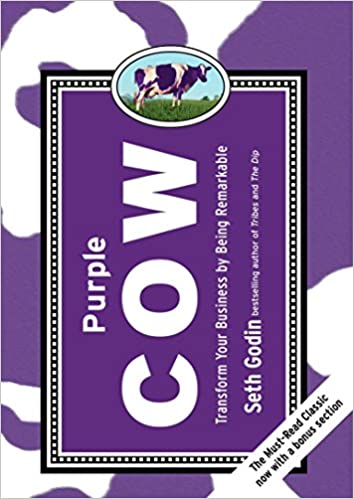
Like I said, if the person ends up on that landing page to take the quiz or to utilize whatever functionality or whatever is there and they’re like, wow, this is really cool. Over on the side you could do a little soft sell and say, hey, we got this essential nesting checklist, we got this video, or training, et cetera.
This is a core thing. I want to stop you for a second because it’s stuff that I think you and I know, maybe people are hearing, and I don’t know if they’re computing. What you’re actually saying is that we live in a world where a lot of brands are thinking about native advertising. How do I go on BuzzFeed and work with them to create something unique that might create attention?
What you’re saying is, forget that. Why don’t you create the survey on your own? That page is also your content area. It’s your place to create a call to action in another way or take them somewhere else or further down that line of how they might get more and more engaged with you. You’re sort of saying it off the cuff, but I think it’s a really critical component because it opens up a prism of marketing that isn’t advertising-based.
That’s what makes what you’re saying to me. Well, of course though, why don’t we do this? So few people do this because the opportunity then is you could actually leverage keywords. You can even do a keyword buy against this, which I think would be pretty reasonable because you wouldn’t be going off massive brands.
People are looking for quizzes, fun things to do, or whatever. You could probably buy some cheap advertising space to let people know about this fun quiz viral getting your friends and family to start to share it. The benefits of it transcend just SEO. You’re actually creating a stable of content that is actually ad-supported by you as a brand.
Organic SEO is like free traffic; if you've got somebody in your hip pocket, who knows the ins and outs. But trying to do it all yourself, I think we're past those days, unless you're an uber-geek and you love going through 700-page… Share on XYeah, that’s a great way to put it. It’s content marketing, I think, on steroids. Instead of just leaving it to BuzzFeed, you pay the money and then they help you create some content pieces. It’s really only helping them. Because if you notice, those are articles that are sponsored and never have a link out that passes PageRank. It’s always nofollowed. If there’s a link at all to the brand, it’s nofollow, so you get zero SEO credit.
Buzzfeed has a lot of authority in Google, but you get zero of it and you pay them a lot of money. Why do that when you can create link-worthy, buzzworthy content on your site, on your blog? That’s the launching pad for this fantastic content marketing, this remarkable content, and then you’re going to use social power users.
Influencers, your own link, even your own page. You could have 10 people who liked your brand on Facebook, even seeding it to them is a good place to start.
Yeah. I have a two-prong approach that I’d recommend. One would have influencers that are already friends or in your network that you can leverage. I, as an SEO consultant, have nurtured some really great relationships with power users. I have a power user friend, who is in the Century Club and Reddit, which means she has over 100,000 linked karma points. That’s pretty powerful. She hits the front page of Reddit all the time.
You don’t want to have some salesy piece of garbage on the front page of Reddit.
You don’t want to have some salesy piece of garbage on the front page of Reddit. I mean, I would never make it to the front page then because it’s got to be high quality and worthy of being in front of that Reddit audience. You want to be very careful with an audience like that. You don’t want to alienate them or create something that’s just not adding massive value.
Let me hop in. What I tell people is this and I’m simplifying it because again, I always say that your brain is awfully big, which is both a curse and a blessing.
Thank you, Mitch.
It’s a backhanded insult when I say your brain is so big. What you’re saying is that a lot of brands look at a platform, let’s use Reddit, and say, how can I sell my stuff to these people? What you’re saying is and what I say all the time is don’t ask that question. Ask yourself, how could I, my brand, become a valuable part of that culture?
If you start with that slight perspective, you actually start thinking about assets that you have—content would be one of them, ideation, team support, size—and figure out ways that you could help that community be better and be more interesting, want to connect? That’s what you’re saying.
Yup, exactly.
Time quickly trickles away when you start going on your thing and it’s so interesting. You did talk about video. I think we would both agree that one of the most profound shifts in search has been image-based, whether we’re looking at things like Instagram or even now, I would say, Pinterest and those types of audiences.
Talk a little bit about what a brand needs to understand when it comes to things like image-based playing. It’s such a different world and I actually think it’s the best world. Even Facebook, quick images, getting people to just look at things. From your perspective, what do they have to know in terms of making sure it’s in there what you would call properly right?
“Tactics without strategies is the noise before defeat.”
Yeah, so there’s some strategy and there are some tactics here. On The Art of War, Sun Tzu said, “tactics without strategies is the noise before defeat,” so we don’t want to do a bunch of tactical stuff that makes noise and doesn’t actually move the needle. You got to have an overarching strategy here for your Pinterest, YouTube, Instagram, and so forth.
Let’s just say, from a tactical standpoint, you already have the strategy in place. You’re going to do these amazing scavenger hunts and leave clues in your Pinterest channel. You’re going to do some really cool stuff, and maybe some influencers, Pinterest channels, blah, blah, blah. From a tactical perspective, there are a bunch of things that you can do just to make things that much more effective.
For example, you reorganize your pinboards so that the pinboards that are most important to driving your brand and your outcome are high up on the page. They’re not just random. You’ve decided that these are the five or four most important pinboards, you just rearrange them so that those are the ones on the top. Maybe create some seasonal pinboards because those can do really well.
You do it not at the last minute like two weeks before Christmas but September. When everybody’s thinking back to school, that’s when you start building out a killer pinboard for the holidays. There’s a ton of stuff. I went through a whole huge PowerPoint deck of tactical tips, tricks, and so forth for Pinterest at PubCon in the fall, which I’d be happy to share with your listeners that PowerPoint deck if they’re interested.
Let’s take YouTube because it’s a visual medium. It’s not just images, it’s movies. If we can optimize our YouTube channels for greater reach, views, and so forth, that’s even better, as it is also the number two search engine as well as a social network. Some things you can do are just really simple things like the image thumbnail. You can do a custom image thumbnail. It could be an old video, it doesn’t matter how old it is. You can go back and optimize your image thumbnails.

If you ever are a verified YouTube user, which means you just have to provide your mobile number and then it sends a verification code, and boom, now you’re a verified YouTube user. You can upload a custom thumbnail that doesn’t even have to be a frame from the video. You can add graphics to it and so forth.
If you just do that, you’ll find a profound impact on your views and engagement on YouTube because the video’s image thumbnail is a bigger influencer on the user’s click decision in the YouTube search results than the title or even the position you are in the search results, so that thumbnail is critical. You can easily go through and just optimize a whole bunch of those while you’re at it.
In all these old videos on your channel, the titles and the description, make sure that your URL is at the beginning of the description where you want to drive people to not weigh down where they have to click on the show more in order to see it because then you’re just going to kill the click through rate to your landing page. Make sure that you turn off statistics so that all your competitors can’t see your stats on your video like the trends of embeds, views, and all that.
There’s a lot of old tactical stuff like that. If you’re interested in learning more, I know I could go on about this forever. My book, the newest one, Social eCommerce, has a whole section in there dedicated to YouTube optimization tips and tricks.
It’s great. I’m not just saying because I blurb the book. It’s a crazy book. I think one of the things, Stephan, that if people had not heard of you before that I would say about you is what you just demonstrated. It’s that depth of tactics that you get into. I didn’t read the whole thing but when I glanced through The Art of SEO, it really was an awakening for me when I realized, this is not just a masterclass.
It’s not for me anymore to have that depth of knowledge. I wound up reading the beginning of chapters or certain components, but when it got into the weeds, I thought, wow, it’s now taken away from me. The reason I say that is because when you talk about things like you’ve got to get in there, get into those thumbnails, I often worry that the people who hear this will think, now we’re getting to the minutia and the stuff that doesn’t matter.
I think what I get overall from your message is that even just being aware that these things exist, whether you’re doing them or not, hopefully, and this is why I wanted you on the show, opens people’s eyes to the fact that this has become a sophisticated, very mature market. It’s not just pay to play, and that the opportunity to really lead digitally still exists.
I think a lot of brands look at it and go, forget it. The 800-pound gorilla is my top competitor. They’re out spending me, they’re out SEOing me, they’re out doing all this. What you’re saying is that if you get somebody in there, and there’s a little bit of elbow grease, odds are you can dethrone people like that because the opportunity is there.
The Google algorithm of page rank, which is the foundation from the very beginning, looks at the importance of web pages and the importance of trust and authority. Share on XYes. You just said it perfectly. It’s like there’s some secret knowledge, which isn’t that secret. You can buy books such as Social eCommerce and read up on it or you can hire a consultant. I’m for hire, but I’m expensive.
You just get these resources and people in your corner and you can punch above your weight. You can beat Goliath. That’s, I think, amazing that this opportunity still exists these many years later into the maturity of search and social media. There are still tons of untapped opportunities where the 800-pound gorilla in your market, in your industry does not know this stuff. You could leverage that.
I want to close out by just getting some of your thoughts because it’s one thing to recognize that even if someone isn’t as skilled or as experienced as you are, the mistakes are made. These things are sort of normal in the work and play of digital.
I always say a lot of it is like MacGyver. We’re still putting this thing together like chicken wings, paper clips, and bubblegum. A lot of it is being cobbled together on a platform that was never meant to do the things that it’s done.
What I want you to talk a little bit about is the fact that you could know all this stuff that you know and yet tomorrow, Google could change an algorithm that fundamentally changes everything or no, that’s not the case because that is sometimes what we hear. I brought in the search consultant and then they just had to Google, changed everything, and then SOL as we say in the business.
It’s the rising tide that lifts all boats, so your entire website will benefit.
Right. I wouldn’t worry about that because foundationally speaking, the Google algorithm of page rank, which is the foundation from the very beginning, looks at the importance of web pages, importance of trust and authority. Now, it’s not just about getting votes as links. It’s about the power of each of these votes. Not every vote is created equal. Not every link is created equal.
Here’s your opportunity to differentiate, to outsmart the competition, and get powerful links and powerful votes which propel you forward. It’s the rising tide that lifts all boats, so your entire website will benefit. Do some crazy, brilliant content marketing campaign and it’s over there, tucked away on your blog somewhere. Your entire ecommerce site would benefit because you did this killer campaign, it took off, went viral, and got lots of links, social shares, et cetera.
This is still, I think, a ground for opportunity, even though we’re well into the maturity of search, like I said. It’s just a question of what your priorities are. If you think in terms of outcome focus versus activity focus, that’s going to change the game for you because most online marketers, I think, in fact, are activity-focused.
There’s a huge to-do list and they got to check off every single item. Oh, well, we haven’t optimized for video thumbnails yet. We got to do our keyword research on YouTube. We got to do our optimized titles and blah, blah, blah, blah. There are 50, 100, or 500 things to check off. No, that’s the wrong way to manage anything.
A project, a discipline, or your life in general, it’s about your outcome. If you think of these activities as arrows in your quiver, if you can hit the bullseye, that outcome you’re after with just the first arrow or first few arrows, boom, you finally got it with three arrows, that’s amazing. Why would you use up the rest of your arrows?
Why would you check off every single to-do on your to-do list when you can come up with a bigger, more hairy, audacious goal, a new outcome, a new target for your bullseye to hit? Now you have a different set of arrows in your quiver. That’s the way I think you should look at your marketing, your SEO, and life.

Here we are in a world where you’re telling people, please optimize on the go, please test little things as you go. We all get trapped in these things every day where we feel like we can’t get down to the little stuff.
It’s always a pleasure talking to you and always a pleasure hearing all of these little things that actually can do really big things to help change a business digitally. Let people know where they can best connect to you and your work.
All right. Thank you, Mitch. Yes, stephanspencer.com is my personal site. You can reach me there. You can find me on Twitter, @sspencer is my Twitter handle. I’m on Facebook, Stephan Spencer, and Pinterest, of course, and all various social sites.
You can also check out my information product training program on SEO. It’s scienceofseo.com. My email is [email protected].
Thanks so much for your time, Stephan.
Thank you, Mitch. It’s been a pleasure.
Important Links
Connect with Mitch Joel
Apps and Tools
Books
Businesses/Organizations
People
Previous Marketing Speak Episode
10 SEO Myths
- Don’t use Google Analytics because Google will spy on you and use the information against you. This one comes straight from the conspiracy theorists. Google has made numerous assurances that they aren’t using your traffic or conversion data to profile you as a spammer.
- Having an XML Sitemap will boost your Google rankings. In any event, Google will use your sitemaps file for discovery and potentially as a canonicalization hint if you have duplicate content. It won’t give a URL any more “juice” because you include it in your sitemaps.xml, even if you assign it a high priority level.
- Meta tags will boost your rankings. Unfortunately, optimizing your meta keywords is a complete waste of time. Spammers have abused them so much that the engines haven’t put any stock in them for years. What about other meta tags — such as meta description, meta author, and meta robots — you ask? None of the various meta tags are given any real weight in the rankings algorithm.
- It’s a good practice to include a meta robots tag specifying index, follow. This is a corollary to the myth immediately preceding. It’s unnecessary. Search engines all assume they are allowed to index and follow unless you specify otherwise.
- You can keep search engines from indexing pages linked-to with Javascript links. However, there are many documented cases of Google following JavaScript-based links. Google engineers have stated that they are crawling JavaScript links more and more. Of course, don’t rely on Google parsing your JavaScript links, but don’t assume it will choke on them either.
- Googlebot doesn’t read CSS. You’d better believe Google scans CSS for spam tactics like hidden divs.
- You can boost the Google rankings of your home page for a targeted term by including that term in the anchor text of internal links. Testing done by SEOmoz found that the anchor text of your “Home” links is largely ignored. Use the anchor text “Home” or “San Diego real estate” — it’s of no consequence either way.
- It’s important for your rankings that you update your home page frequently (e.g. daily.) Plenty of stale home pages rank just fine, thank you very much.
- Linking out (such as to Google.com) helps rankings. Not true. Unless perhaps you’re hoarding all your PageRank by not linking out at all — in which case, that looks unnatural. It’s the other way around, i.e. getting links to your site — that’s what makes the difference.
- H1 tags are a crucial element for SEO. However, research by SEOmoz shows little correlation between the presence of H1 tags and rankings. Still, you should write good H1 headings, but do it primarily for usability and accessibility, not so much for SEO.







Leave a Reply